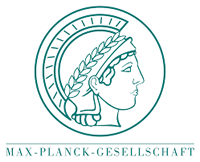Dr K. Bos, Prof J. Krause
No more applications being accepted
Funded PhD Project (Students Worldwide)
About the Project
The Archaeogenetics department at the Max Planck Institute for the Science of Human History in Jena, Germany, is offering a PhD position in Ancient Pathogen Genomics beginning in summer 2016. The overarching research topic at the institute is the use of novel scientific approaches from high throughput sequencing of ancient DNA from human populations and their pathogens to explore research questions related to human history & demography, gene-culture coevolution, and adaptation to infectious disease. The main foci are the relationship between humans and pathogens through time, human population dynamics on a (pre)-historical time-scale, and in tandem with microbial evolution.
The institute hosts a multi-disciplinary research team and is looking for students from a variety of backgrounds including, but not restricted to, molecular biology, bioinformatics, microbiology, chemistry, biochemistry, mathematics, physics, computer science, anthropology and archaeology. Students holding a Master’s degree (or equivalent) with a proven record of success in their discipline and a genuine interest in examining questions related to human history are encouraged to apply.
Deadline for applications is the 10th of February 2016.
The Max Planck Society is committed to employing more handicapped individuals and especially encourages them to apply. Please apply online at https://s-lotus.gwdg.de/mpg/mjws/ag_phd_2016.nsf/registration
The Max Planck Institute is not a faculty, but is affiliated to, among others, the Eberhard-Karls University in Tübingen and the Friedrich Schiller University in Jena, Germany. Doctoral degrees will be granted by one of the affiliated universities.
Doctoral candidates enrol in a 3-year fully-funded and structured program that provides excellent research conditions. Graduate courses and all other degree requirements require proficiency in English only.
For detailed information on the application procedure please visit our website: http://www.shh.mpg.de/phd_archeogenetics

 Continue with Facebook
Continue with Facebook

